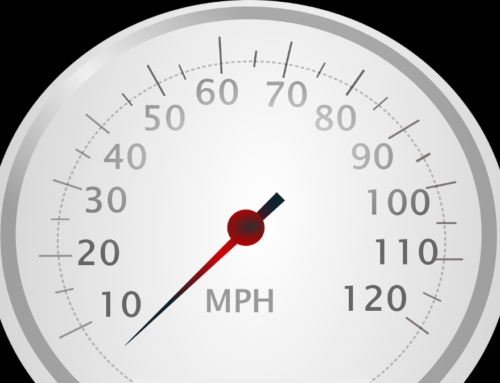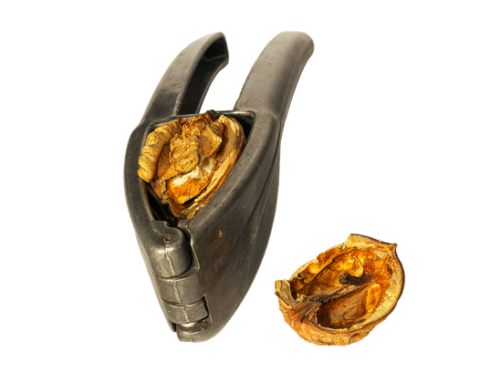As we get closer to year-end, most businesses will begin thinking about “taxes” — one of the most dreaded words in small business. If you start thinking about your bookkeeping and taxes in January, it’s too late. Updating your bookkeeping and reviewing your financials prior to year-end is very important so you may do something about your tax situation before it is too late. Here are 7 “must do” bookkeeping task that need to be done before year-end.
reviewing your financials prior to year-end is very important so you may do something about your tax situation before it is too late. Here are 7 “must do” bookkeeping task that need to be done before year-end.
1. Reconcile the Books
The best thing you can do for your year-end bookkeeping and taxes is to make sure QuickBooks is reconciled. Reconciled books, confirmed with bank statements, is a key milestone and enables the next set of tasks. A truly reconciled QuickBooks file tells your bookkeeper and tax preparer that all items were entered into the system. Next, someone just needs to ensure the entries made it to the right categories. Handing over an incomplete set of books to your CPA, which your bookkeeper should handle, will be very costly. Also, if you hand your CPA a QuickBooks file at tax time that is not reconciled, you will also need a tax extension filing. Make sure to reconcile all accounts — not just bank accounts. It is important to reconcile credit cards, loans, lines of credit and payroll liabilities in addition to your bank accounts.
2. Asset Review
One thing that you should do now is to take a peek at your asset accounts. You want to be searching for any obvious errors where an item was mistakenly booked to an asset account. Similarly, if you are listing an item, say, in fixed asset ‘Equipment’ at less than $100, you most likely need to reclassify that small charge. Look for any blatant items that need to be reclassified to a correct account. Move those entries to an account called “Unassigned Account”.
3. Review “Unassigned Account” items with your CPA
You should always use the QuickBooks “Unassigned Account” category for any questionable transactions. If you are unsure where a transaction should be posted, add it to the “Unassigned Account” category. Once you have had time to research it, or to ask that responsible individual for the nature of the item, you can then code it appropriately. This method will at least allow you to keep the books reconciled, which is task #1 on this list and a top bookkeeping priority. Using an “Unassigned Account” keeps all your questions organized in one spot to facilitate review with your CPA before year-end.
4. Clean Up A/R and A/P
Maintaining organized and up-to-date accounts payable and accounts receivables is always important. Before year-end is a great time for a review and adjustment of you’re A/R and A/P entries. Running your aging reports on both accounts receivable and payable may reveal some issues or errors. Common accounts receivable errors include not offsetting credits against old invoices. You want to try and collect your outstanding receivables balances before year-end and, if appropriate, write-off the bad debt that you will never collect. Looking over aged payables may reveal some inaccurate balances. Do some research on any odd balances and request statements from those vendors. Going into year-end with accurate and up-to-date payables and receivables will make all year-end accounting and tax prep more efficient.
5. 1099’s for Independent Contractors
Having outstanding 1099 independent contractor tasks in January can be very stressful. You already have enough on your plate in January and collecting contractor data for 1099s is the last thing you need to do. Beginning the New Year, you want to be focusing on sales growth and not on a 1099 government compliance task. Ideally, you should be processing 1099 information throughout the year rather than waiting until the deadline. Most business leaders are aware that they should request a W-9 form from their independent contractors, but very few actually do. It is recommended that W-9s be filled out by each vendor before paying them versus after the contract work has been completed. Tying the data collection process to the initial contractor payment keeps everyone focused on getting the paperwork out of the way. Before year-end, do a review of your contractors and make sure to input the 1099 information in QuickBooks. Come January, instead of spending time gathering the Independent Contractor information, you can simply mail out 1099 forms without the fuss.
6. CPA Review Before Year-End
This step is by far the most important one in preparation for minimizing tax impact. You need to do a year-end tax review with your CPA to get an estimate of your tax liability and how you might affect it. An investment of this time can provide significant financial benefit. So why do many small business owners skip this step? Since many small business owners dislike thinking about taxes, it’s one of those tasks many tend to defer. You need to review your taxes with your CPA prior to year-end for two very important reasons.
a. There are tax steps you can take prior to year-end that are more beneficial than waiting until the new tax year.
b. If you are going to owe taxes or get a substantial refund wouldn’t you rather have several months’ notice rather than just a few weeks’? Especially in the case that you owe tax, you will be more prepared.
7. Create a Budget
You have one more key item to go before year-end…well done! Don’t stop reading because creating a budget is essential for your small business. It is also important to create your budget prior to year-end. Come December, you should have a pretty good idea of how your year is going to end financially. Any major changes in your business during December may require your budget to be reworked, however, it is unlikely for your budget to need much change. A budget created this year enables a fast start in the New Year rather than still doing your basic business planning. January should be a time for accelerating the execution of your refined plan and not for creating it.
Year-end is coming and it is time to get your bookkeeping done. Follow these simple steps and bring your CPA the cleanest set of books you ever had. Don’t forget a tax review before year end…it’s important!
Focus on what you do best.
Your Biz Manager (www.YourBizManager.com) can help. You can start the process by sending us an e-mail (info@YourBizManager.com) with your contact information, a list of your bookkeeping or business support needs or by texting or calling 424-246-6006.
Receive a FREE consultation and 50% off.
Click here or contact us to receive your free consultation and 50% off your first four (4) hours of service. Just mention this post.
 About Doris Cristiano & YourBizManager.
About Doris Cristiano & YourBizManager.
As an independent bookkeeper, Doris has been providing flexible business services in Santa Monica and West Los Angeles since 1997. To support Clients’ needs and growth, YourBizManager tailors its services to each unique business situation and works closely with its clients at their business or home office. More About Us







